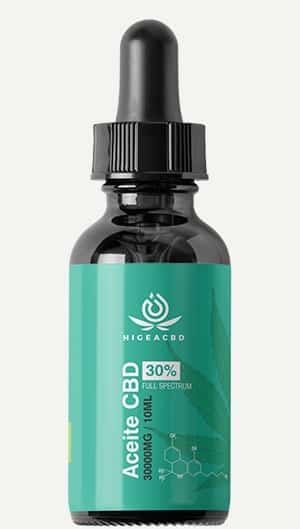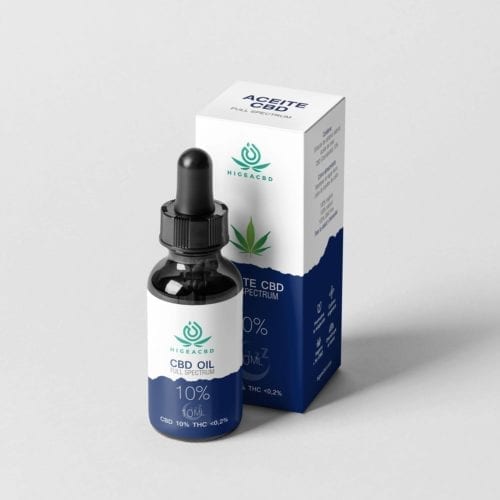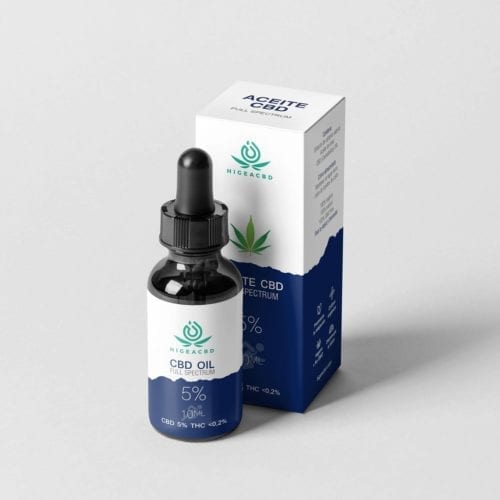How can CBD help you if you suffer from Crohn's disease or Ulcerative Colitis?
Inflammatory bowel disease encompasses two of the ailments that affect more than 2.5% of the Spanish population according to the Catalan Society of Digestology: Crohn’s Disease and Ulcerative Colitis. Both diseases make it difficult for patients to day-to-day causing symptoms as uncomfortable as diarrhea and severe abdominal pains.
CBD oil has anti-inflammatory properties that can help soothe these symptoms and improve the well-being of sufferers. Next, let’s explain how and why cannabidiol is able to help deflate the intestine and organs of the digestive system.
Showing 1–8 of 25 resultsSorted by price: low to high
-
Sale!
Aceite Higea CBD 10%
Original price was: 29,95€.24,95€Current price is: 24,95€. Add to cart -
Sale!
Hygea CBD Oil 20%.
Original price was: 49,95€.34,95€Current price is: 34,95€. Add to cart -
Sale!
Hygea CBD oil 30%.
Original price was: 89,95€.49,95€Current price is: 49,95€. Add to cart -
Sale!
Aceite Higea CBD 5%
Original price was: 23,95€.19,95€Current price is: 19,95€. Add to cart -
Higea CBD muscle pain cream 50 ml
21,95€ Add to cart -
Basic Pack
47,41€ Add to cart -
Medium pack
94,81€ Add to cart -
Sale!
Healing Balm Hygea CBD
Original price was: 21,95€.19,95€Current price is: 19,95€. Add to cart
What is Crohn’s disease?
Crohn’s disease is a chronic pathology, characterized by inflammation in the intestinal tract. It can affect any part of the digestive system, however, it is usually common to affect the last section of the small intestine, inflamed the ileon. It is also common to find this ailment located in the first section of the large intestine, in the colon. Although there is not enough scientific evidence to confirm it at this time, Crohn’s disease is thought to be caused by a misregulation of the immune system. The intestinal tract faces bacteria in our diet and environment every day and any factor that affects your balance can trigger symptoms to progress. Crohn’s disease is a chronic pathology, characterized by inflammation in the intestinal tract. It can affect any part of the digestive system, however, it is usually common to affect the last section of the small intestine, inflamed the ileon. It is also common to find this ailment located in the first section of the large intestine, in the colon. Although there is currently not enough scientific evidence to confirm this, Crohn’s disease is believed to be caused by poor regulation of the immune system. The intestinal tract faces bacteria in our diet and environment every day and any factor that affects your balance can trigger symptoms to progress.
Within the digestive system, the most common symptoms suffered by patients with Crohn’s disease are:
- Abdominal pain
- Diarrhea
- Fatigue
- Fever
- Loss of appetite and weight
- Watery, bloody stools
- Ulcers
However, Crohn’s disease can also cause symptoms outside the gastrointestinal tract such as:
- Joint pain
- Inflammation of the liver
- Skin problems
- Eye problems
- Yagas in the mouth
- Anemia

Factors contributing to Crohn's disease
Factors contributing to Crohn’s disease can be divided into 3 categories: Factors contributing to Crohn’s disease can be divided into 3 categories:
- Genetic Predisposition
- Environmental factors such as pollution, poor diet, infections, antibiotic treatments or anti-inflammatory drugs or smoking
- An abnormal immune response that causes inflammation
One of the most common responses of the body to potential bacterial threats is precisely inflammation:
We all know how inflammation works when, for example, we fall off and make ourselves a wound or a cut. The affected area becomes red and inflamed as our immune system tries to get rid of the bacteria and viruses that are in the wound. After a few days when the immune system has finished its work the inflammation and redness cease.
In Crohn’s disease, inflammation and ulcers occur in the digestive tract so our body’s immune system works to fight bacteria and viruses in the same way as it does with an external injury. However, unlike in the previous example, once our defenses have been rid of viruses and bacteria, our immune system is not able to identify that the problem is solved and “shut down” or “put in stand by mode”. This is why the ulcers remain until they can be treated medicinally or with surgery. In short, patients suffering from Crohn’s disease suffer from chronic inflammation of the gastrointestinal tract that generates a large number of symptoms inside and outside the digestive system.
What are the differences between Crohn’s Disease and Ulcerative Colitis?
Ulcerative colitis is a chronic disease with symptoms very similar to those of Crohn’s disease. Both pathologies form the group of Inflammatory Bowel Diseases. However, Crohn’s disease can affect any part of the digestive tract while ulcerative colitis exclusively affects the colon and large intestine.

What are the benefits of CBD for patients suffering from inflammatory bowel disease?
Recent scientific studies investigating the relationship between cannabinoid consumption and these effects suggest that there is a pharmacological reaction where certain cannabinoids improve symptoms of patients with Crohn’s disease and Ulcerative Colitis. In this article we explained how cannabidiol intervened with CB1 cannabinoid receptors and triggered an anti-inflammatory effect. And it is that, according to a Study from the University of Bath in the United Kingdom, in the absence of an endocannabinoid that the body should produce, CBD may be the key that activates the inflammatory signal shutdown switch emitted by the immune system in patients with inflammatory bowel disease (IBD).

This would solve one of the main problems caused by these pathologies and, above all, their unpleasant symptoms. In addition, the intervention of cannabinoid receptors in the epithelialbarrier is being investigated, which could also have therapeutic benefits in chronic intestinal inflammation. However, we are faced with the first scientific evidence that reveals pieces of the puzzle and we need to continue researching all these mechanisms to know how our endocannabinoid system intervenes with the different Inflammatory Diseases of the Intestine. We cannot take it as a cure to our pathology, but we can try it (with the consent of our doctor) whether we experience improvements when we consume CBD extracts or not.

Anecdotal evidence from patients using BENEFITS of CBD oil to alleviate their symptoms derived from inflammatory bowel diseases report the following improvements: Anecdotal evidence from patients using CBD oils to alleviate their symptoms from inflammatory bowel diseases report the following improvements:
- In colitis
- Reducing diarrhea
- Increased appetite
- Abdominal pain
- Inflammation
Related articles
CBD bruxism
In this article we will tell you about the benefits of CBD bruxism. What it consists of, symptoms, causes and possible treatments
Can CBD oil help treat postpartum depression?
CBD in the treatment of postpartum depression prevents the breakdown of natural anandamide in the new mother’s body
CBD for rosacea
CBD for rosacea. What this skin condition consists of, its main symptoms, what causes it and the most recommended treatments.
CBD and paroxetine
Paroxetine is an antidepressant that is also used to treat anxiety and depression. Can CBD and paroxetine be consumed?
CBD tinnitus
Whistling or ringing in the ears is a condition experienced by many people and is called tinnitus – can CBD be used?
CBD for hemorrhoids
The most common symptoms of this condition, the causes, its treatment, and how you can use CBD to treat hemorrhoids.
Subscribe to our newsletter
Subscribe and receive a 10% discount on your purchase.
Store
Categories
Guides
Legal notice and privacy policy
















